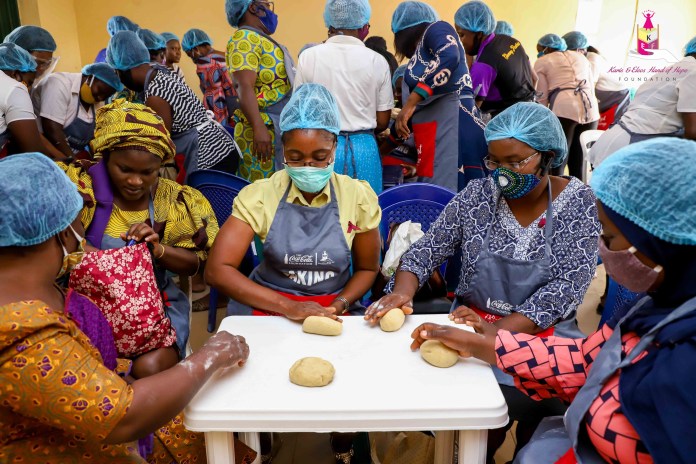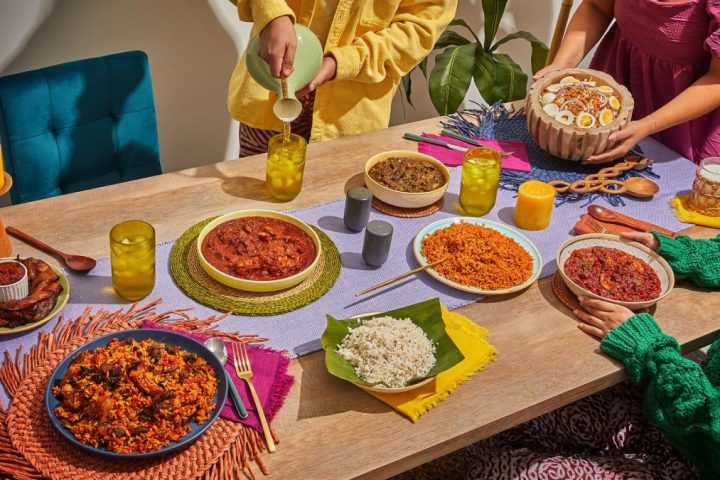Continued from last week on ‘women empowerment’
We may not have heard the last of it. Men should better find a way to accommodate the coming tsunami rather than postulating that it is taboo for women to be initiated into the prestigious Ozo titleship and other such traditional institutions.
READ ALSO: Women’s Empowerment – Igbo Cultural Perspective 1
Join our WhatsApp ChannelThere are other buttons they will push and continue to challenge the society until the barn door is thrown wide open or the levee breaches.
Going back to Arochukwu, why are women’s titles given by the women’s wing of the town union tied to feminism while men’s titles given by the men’s wing of the town union are associated with heroism and courage. Let’s examine a few of such women’s titles includes – Adaukwu Aro (Great Daughter of Aro), Eziada Aro (Good Daughter of Aro), Ezinye Mazi (Good Wife of Mazi) etc.
These titles are adjectival qualifications of women. On the other hand, men’s title includes – Ugwu Aro (The Pride of Aro), Ikemba Aro (The Strength of Aro). The women’s title only emphasizes their feminism instead of character and courage. The titles may have been chosen by women, that notwithstanding because women are thinking based on the limits that men, culture and society have placed on them. They have unconsciously accepted and chose to operate within those boundaries and ceilings. This is not an attempt to incite women against men but to point out that Women’s Empowerment is not just about creating a resemblance of freedom with limits, rather it should be about total emancipation and unleashing the potentials of women. So many women have contributed immensely to the development of Igbo society, yet they are not been accorded the same type and level of recognition as men. Their efforts should be recognized for their worth and not be reduced by tying them to gender.
A few years ago the Nigerian supreme court struck down the age-long practice that prevented women from inheriting and owning property in Igboland. Sadly, it took an outside body like the supreme court to reset our cultural practices. Though this practice has been ruled unconstitutional in Nigeria, the practice still persists. I recall in the early ’90s when a friend Nene – a female from my town built a house in Amasu, it was as if she has desecrated our land. So many elders viewed it as an abomination. Akin to that, my aunt who came back home to the family after being divorced was not entitled to be allocated land in our kindred to build a house. It took the ingenuity of my father to allocate extra land to the plot for his younger brother to enable their sister to adjoin a building to her brother’s building. Even today land is not being allocated to unmarried women in our villages while men even the youngest who can’t even afford “ngwa isii” (traditional fee comprising of hind and arm of smoked bush meat, hot drink, palm wine, kola nut, alligator pepper) are allocated a piece of land. For how long shall this discrimination against women persist. Should we wait for the supreme court to wield its big hammer on other aspects of our discriminative practices before we take to make a holistic change to our cultural practices that are unfair to women.
Even at the national level, the issue of denying opportunities to women is pervasive. In this era of heightened level of Women’s Empowerment movement, the national assembly thought it to be good politics to vote down all the bills related to women in the ongoing constitutional amendment exercise. It is heartbreaking to see women lying on the road at the entrance gate of the national assembly to draw public attention to this inhumane treatment mated to women. Must our women beg and crawl on all four before men grant them the same level of opportunities available to men. Even the most basic bill of married women having indigeneship right is their place of married even after 3 years which should be a no brainer was voted down. Haba!!! Men com’on now. What else do men want women to do before accepting the fact that women should not be perceived as threats but as equal partners in the development of society.
If the fight for Women’s Empowerment is to be won, there needs to be a paradigm shift in the strategy so far adopt. The fight has taken a long time while little has been achieved especially in our traditional and cultural setting. It is those who wear shoe who knows where it pinches. Women need to properly articular in concise, clear unambiguous terms what they need to guarantee them equal opportunity with men. There seems to be some confusion on the messaging. Describing the fight for equal rights may be misleading, to say the least, or turn away men sympathizers. To me, the fight should be about Equal Opportunities and not equal rights – because of the perceived threat of the word “right”.
Another challenge to the fight is the top-down strategy being currently adopted. Men and even most women see the fight as elitist, urban and for career women. There is hardly any grass-root constituency to the fight. This makes it difficult for a lot of women to identify with it and a lot of men see it as an attempt by successful women to confront their husbands. If you look at the composition and ‘colour’ of women during the demonstration at the gate of the national assembly, you will only see career women.
Where are the market and ordinary women who bear most of the brunt of the marginalization of women. They were not there and not concerned with the fight. If Women’s Empowerment is to be achieved, it must grow from our cultural practices. That is why despite the supreme court ruling, women are still being denied inheritance from the father’s estate. If approached the way the Osu cast system and other similar cultural discriminatory practices were abolished in Igboland, a community-led approach should be adopted. This approach will include the Eze’s, Obi’s, traditional rulers, the Igwes and other custodians of our culture. Court pronouncement though necessary may not produce the level of acceptance that is required to win the fight. The woman on the street needs to be educated on what the fight is all about and what she stands to gain. Without this enlightenment, it is will be difficult to enlist the woman on the list to the fight if she stands to gain nothing. She’s more concerned with how to provide for her family and take care of her children. This is a task for the women.
Another thing to consider is, to win the fight, the way boys and girls are raised has to change. Women play a major role in shaping the mindset of their children. Women should start treating their sons and daughters equally. Girls should not be confined to the kitchen while boys are allowed to lazy about with their fathers watching TV or playing video games. Treat them equally if you want the boys to grow up as men and see women as equal rather than subordinates. Girls on the other hand should not see their dream only from the perspective of wife and motherhood but should dream to conquer the world like men. While this approach may not yield immediate results, it will surely strike at the heart of these cultural practices that hold women down and deny them equal opportunity. It is like planting a tree. It takes time to grow but when it does, it will be rooted, last long and be difficult to uproot.
While not holding brief for women, because it is those who wear shoes knows where it pinches as I mentioned earlier. Back to Igboland, women should make a list of all the cultural changes that will assist in empowering them. Women’s meetings or groups should then respectfully engage the men and traditional institutions in a less aggressive and confrontational manner to present their cases. We stoop to conquer they say. It will not be easy but that should be a good starting point. Go big and accept little wins so you can live to fight another day. Lobby, Lobby, Lobby. Do not write off any man, even the most antagonist or vocal critic of your cause. The most conservative and aggressive men may be your biggest champions if they are persuaded and won over.
In politics, while women are more than men in the voting population, men find a way to dominate the political space, making policies that make it very difficult for women to participate. They use tactics such as holding political meetings in the middle of the night when they know that women will not want to leave their families in pursuit of their political dreams. If that is not enough, they use high entry fees to weed out women knowing full well that women are not as “rich” as men to afford the high nomination fee. While most men finance their political adventure with ill-gotten and stolen wealth, most women scratch to raise money to even step out of the door for politics. Women in politics are judged differently than men by society. They are judged by their looks; their hairstyle; what they wear; who they go out with or sleep with; if they are married; if they have children; so on and so on. Gowon and Obasanjo were bachelors when they ruled Nigeria as Head of State and President but nobody bothered. But if there were women society will never accept it and if they do, the women will be under fire every minute of the day. Men also place all sorts of obstacles and hurdles on the path of most women in politics by demanding sexual gratification before granting them what is rightly theirs. These are some of the barriers that need to be eliminated on the path of women in politics to effectively empower them.
This article has deliberately sidestepped the issue of Women’s Empowerment in the workplace or corporate environment. The reason is that empowerment in those environments is easy to achieve with legislation, policies and judicial pronouncements. The most vicious inequalities against women happen in our cultural societies. That is the most difficult to conquer because it is entrenched and the arm of the law is too short to reach them. In my opinion, that is where the battle should be fought if the trend is to be reversed.
Men should realize that if you hold somebody on the ground, you are holding yourselves. The time to Empower Women with equal opportunity is now.
Mazi Ben Ezenta
1. https://eige.europa.eu/thesaurus/terms/1102
2. https://finca.org/our-impact/community-transformation/women-empowerment/
3.

















Follow Us